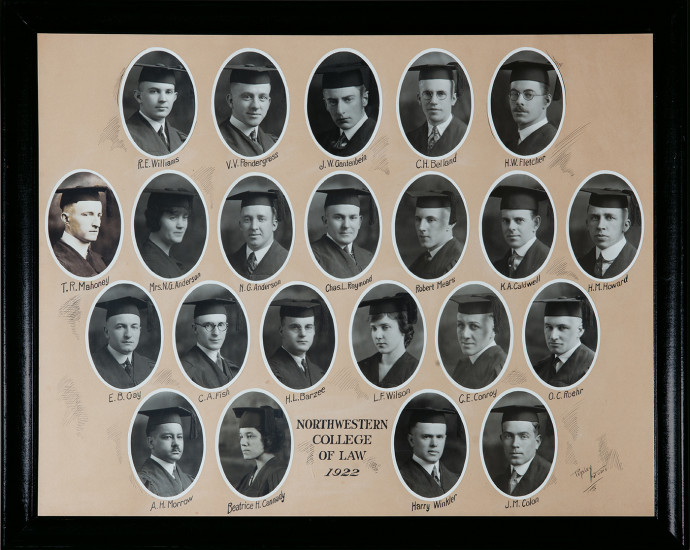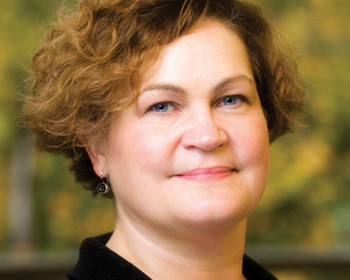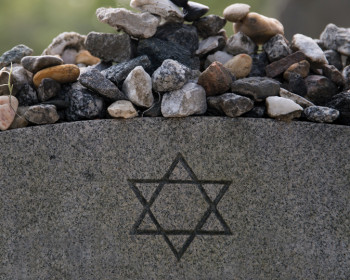Windows Into the Past

The oldest memory book in the law school’s archives is the 1922 issue of The Nor’wester Annual. There were only 22 graduates that year, but they left tantalizing glimpses of life at the law school, including these yearbook tributes.
-
Beatrice Morrow Cannady

Interestingly, there is one woman missing from yearbook’s biography pages, and the language in Louise Wilson’s tribute implies that this omission was not simply an oversight. The first African American woman to graduate from law school in Oregon, Beatrice Morrow Cannady was already famous for the newspaper she and her husband published, helping to found the Portland chapter of the NAACP, and leading a protest against the showing of The Birth of a Nation in the city’s theaters. She would go on to become an internationally known civil rights activist.
It’s not clear why Cannady’s name is missing from the yearbook. The Oregonian reported not only that she graduated with the class, but that she had also performed two songs at the commencement ceremony. Her brother, who graduated at the same time, had a biography among those of their classmates. But what is known is that Beatrice Morrow Cannady and her brother, Almus Morrow, were asked by Dean J. Hunt Hendrickson to leave the premises of the Multnomah Hotel, site of the commencement, immediately following the ceremony.
-
Huldah P. (Mrs. N.G.) Anderson

Huldah P. Anderson was already a member of the bar and teaching commercial law at Jefferson High School when she enrolled in Northwestern College of Law.
-
Charles R. Raymond

-
Almus H. Morrow

Mr. Morrow has been a resident of the city of Portland for the last eight years. He is a native of the Lone Star state and a graduate of Samuel Huston College at Austin, Tex. Since beginning his course of law, Mr. Morrow has become the proud father of a baby girl. He is with The Portland Times Publishing Co., with offices at 419 Abington building, holding the position of business manager since January, 1920.
-
Three of the 22 members—roughly 17 percent—of the class were women. At the time, less than three percent of the nation’s law students were female.
-
James W. Gantenbein

James W. Gantenbein was the eldest son of Judge Calvin U. Gantenbein, the last dean of the University of Oregon’s Portland-based law program and the first dean of Northwestern College of Law. His family’s name would become synonymous with Northwestern College of Law in the first half of the 20th century.
You can read an early history of the law school by the younger Gantenbein here.
-
Half of the graduating members of the Class of 1922 were veterans of World War I; in fact, so many students had been called to serve abroad that the law school had to suspend operations in 1919 and 1920.
-
Louise Wilson

-
Several graduates of 1922—men and women alike—raised children while attending evening classes.
-
Harry W. Fletcher

-
Harrison Howard

-
Hubert L. Barzee

More Advocate Magazine Stories
email jasbury@lclark.edu
voice 503-768-6605
Judy Asbury, Assistant Dean, Communications and External Relations
Advocate Magazine
Lewis & Clark Law School
10101 S. Terwilliger Boulevard MSC 51
Portland OR 97219

